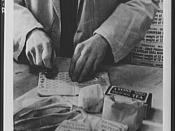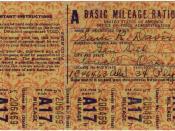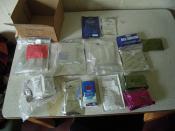INTRODUCTION:
The Second World War saw the disappearance from the shops of all but the necessities.
Rationing of food and clothing was extensive. Issued in October 1939, the Ration Book became familiar to every citizen during the war. The start of rationing was postponed; owing it was said to a Stop Rationing! Campaign by" The Daily Express" from November 1939 until Monday, 8th. January 1940. Rationing began on 8 January 1940. Each person was allowed a specific amount of basic foods, clothes, gasoline and cosmetics etc.
PURPOSE:
The British introduced rationing ands price controls to ensure that supplies of food, clothing, and certain other consumer products were equitably distributed at reasonable prices so each family was provided equal goods according their economic status. The enormous cost of the War was another factor in the rationing.
War conditions necessitated civilian rationing of clothing and certain foodstuffs. The main reasons for clothing rationing were the serious falling off in imports, increased Service demands, and reduced labors for local production of textiles and making up of garments.
The supply to the United Kingdom and the Australian and Allied Services of maximum quantities of foodstuffs necessitated the rationing of sugar. butter and meat, while reduction in imports, consequent upon enemy occupation of Java, necessitated the rationing of tea. In addition to the controls exercised by the Rationing Commission, rationing of certain other commodities is directed by other departments, e.g., petrol, tobacco, liquor, etc. The Government was forced to drastically reduce food and clothing consumption. England was not self sufficient in food production. Just to feed the nation, large quantities of food had to be imported.
RATIONING CARD:
Every Britain, man, woman and child, were issued with a ration card and a National Registration card (an identity card). The ration cards were presented to shopkeepers...


